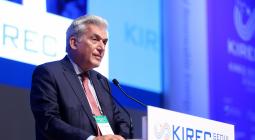REN21 Report Highlights Cities’ Role in Sustainable Energy Transition.
STORY HIGHLIGHTS
-‘REN21 Renewables in Cities 2019 Global Status Report’ examines the role of cities in accelerating a transition to sustainable energy.
-The report emphasizes that cities are adopting some of the world’s most ambitious and innovative commitments for renewables globally and are taking steps to eliminate fossil fuels in transport, industry, and heating and cooling.
REN21 released its 2019 global status report on renewables in cities, which declares that cities “are driving the transition towards renewable energy.” The report is the first in what aims to become an annual review of the global transition to renewable energy at the city level.
The report titled, ‘Renewables in Cities 2019 Global Status Report,’ examines the role of cities in accelerating a transition to sustainable energy. The report recognizes the critical role of cities, noting that 55% of the world’s population currently lives in cities, and cities account for 75% of global carbon dioxide (CO2) emissions and approximately 66% of global energy demand. Urbanization, population growth, rising prosperity and living standards and economic growth are contributing to increased energy demand at the municipal level. The report emphasizes that cities can improve their air quality, boost resilience to climate change impacts, create local jobs and increase economic development by adopting renewable energy infrastructure and reducing reliance on fossil fuels.
The report identifies air pollution as a powerful motivating factor for cities to transition towards cleaner and renewable energy. Other drivers for renewable energy uptake include mitigating and adapting to climate change, reducing municipal energy costs, supporting economic development, promoting a secure and stable energy supply and providing access to modern energy services for the millions of urban residents who lack access. By accelerating renewable energy deployments, cities can create more livable urban areas and enable an improved quality of life.
"City-level renewable energy targets often gain a momentum of their own and can provide long-term certainty to local investors."
The report emphasizes that cities are adopting some of the world’s most ambitious and innovative commitments for renewables globally and are taking steps to eliminate fossil fuels in transport, industry, and heating and cooling. Nearly 100,000 cities have adopted targets to reduce their greenhouse gas (GHG) emissions, and approximately 250 cities have targets to achieve 100% renewable energy.
As an illustration, the Mayor of Boulder, Colorado, US, Suzanne Jones, said the contrast between Boulder’s climate actions and the “rollbacks of the federal government is pretty stark.” She said Boulder aims to transition to 100% renewables and “improve quality of life through the process of climate mitigation and adaptation.” Australia’s capital, Canberra, has also committed to produce or purchase the equivalent of their total electricity consumption from renewable sources. Canberra plans to promote zero-emissions transport by providing fast-track lanes and free parking for electric vehicles.
The report states that such targets often “gain a momentum of their own” and can provide long-term certainty to local investors, helping to ensure that public investments align with a city’s vision. In addition, city governments have started to incorporate accountability mechanisms, including interim goals and reporting requirements.
For cities in the developing world, the report emphasizes that renewable energy offers a pathway to expand energy access to all citizens. To accelerate deployment of renewables, the report recommends addressing current barriers through energy governance, market rules and access to finance.
[Publication: Renewables in Cities 2019 Global Status Report] [Report Webpage] [REN21 Press Release on North American Cities] [REN21 Press Release on African Cities] [REN21 Press Release on Asian Cities] [REN21 Press Release on Latin American Cities]
3 December 2019
REN21




